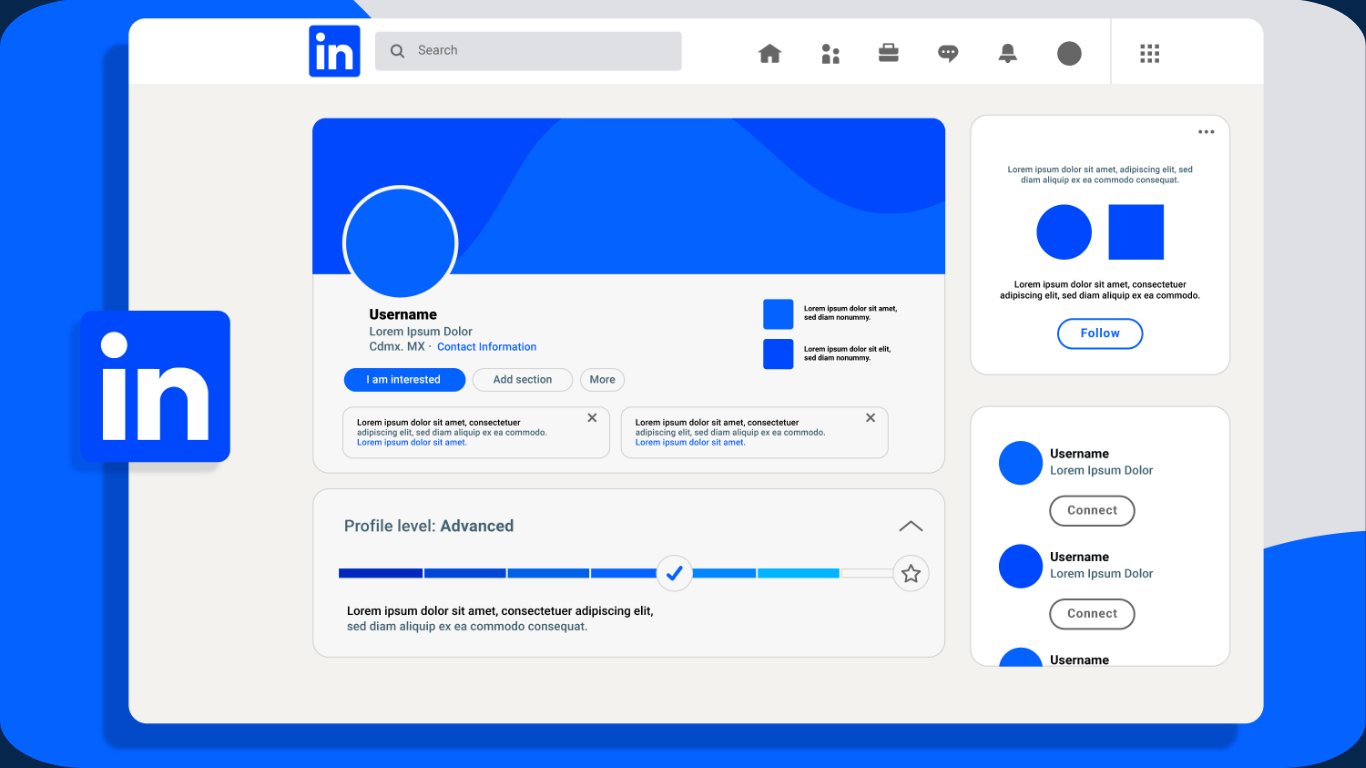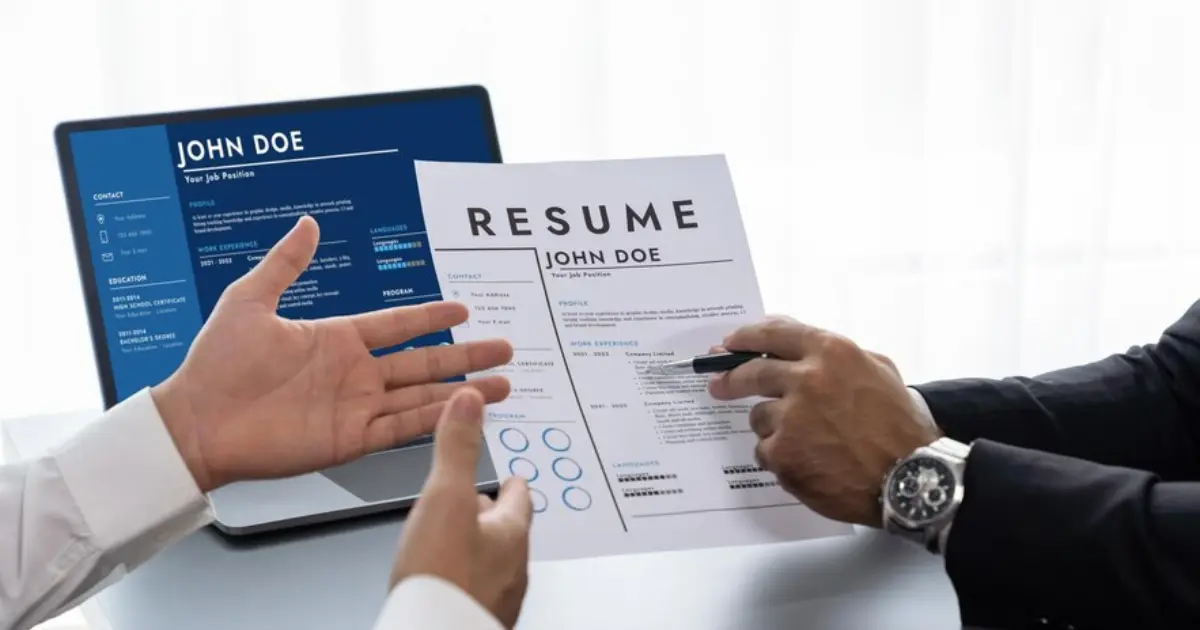For many students, preparing for a job interview can seem like a daunting task, especially when stepping into the professional world for the first time. However, with the right job interview tips and thorough interview preparation, you can approach your student job interview with confidence and poise. So, from writing an effective résumé and cover letter to being prepared for an interview, we will take you through the whole process.
1. Developing a Catchy Resume
Your resume is your first opportunity to make a positive impression on potential employers. Here are some resume tips to ensure you stand out in your student job interview. So, it should be compact, properly structured, and targeted to the specific job applied for. The following are some resume tips to get you on the way:
Relevance: Focus on relevant experiences, such as internships, part-time jobs, or volunteer work, to tailor your resume for the specific job. This is one of the key resume tips that can make a difference in your interview prep. Highlight skills to coordinate with the job description.
Use Strong Action Verbs: Start your bullet points using a strong action verb to draw attention to your accomplishments, such as “developed,” “managed,” or “led.”.
Quantify Achievements: Whenever possible, quantify your achievements. For instance, stating ‘Increased social media engagement by 30% within three months’ is more compelling than ‘Managed social media accounts.’ In this context, using Microsoft Excel formulas can help you present data-driven accomplishments that resonate with potential employers during the interview.
Personalize Your Resume: Finally, personalize your resume for every application. Emphasize the skills and experiences that will fall under the description of the applied job. This portrays that you have done your homework and are actually interested in the position. In today’s digital age, having a well-structured online presence is just as crucial as a polished résumé. Make sure to enhance your LinkedIn profile using LinkedIn portfolio services. This not only complements your résumé but also provides a dynamic way to showcase your accomplishments.
2. Write down a Job-Worthy Letter of Interest
A compelling cover letter can set your application apart from the rest. Below are some cover letter tips to help you stand out in your interview preparation. It’s where you make your introduction and say why you are the best person for the job. Here is how you come up with a killer cover letter to separate you from among all the rest:
Personalization: Address the cover letter to a specific individual, where possible. Avoid general salutations such as “To Whom It May Concern.”
Show Interest: Be sure to mention your interest in the position, and if at all possible, express passion for the company you are applying to. Mention items that particularly attracted you to the company and how they match your personal career aspirations. Bring Experiences to the Fore: Highlight your relevant experiences and skills in the cover letter. Offering specific examples can help make your application more memorable and impactful during your interview prep. Offer examples that show your qualifications.
Demonstrate Your Brevity: A cover letter should be strictly a one-pager. Try to be as concise as possible; it should not contain general statements. Highlight what makes you different from hundreds of other applicants.
3. Winning at Interview Preparation
Effective interview preparation is key to walking into your student job interview with confidence. Here are some essential interview tips to guide you through the process. Here are some important tips for interview preparation:
Research about the Company: Research the company, its culture, and the position you are interested in. Check the company’s website, recent news on the company, and other information sources that could be relevant.
Then, by all means, confirm this by practicing generic questions-key interview questions include “Tell me about yourself,” “What are your strengths and weaknesses?”, and “Why do you want to work here?”-as you prepare to say what you have in mind when you express yourself.
If you’re juggling a job while preparing for interviews, consider the flexibility that online learning offers. You can explore the distance education guide to find courses that fit your schedule. This way, you can continue your education without sacrificing your job search.
Prepare Questions for the Interviewer: Prepare thoughtful questions for your interviewer. This demonstrates your interest in the position and company, which is a crucial part of your interview prep. Avoid those employable by a yes or no response, but instead ask ones that would elicit more explanation, for example: “Can you tell me more about the team I would be working with?”
Journey Planning: If the interview is to be face-to-face, then planning your journey well in advance is imperative. Be sure to understand where you are going and how long it will take to get there. Read to arrive at least 10-15 minutes early.
4. Understanding Interview Body Language
Much is communicated through body language at an interview. Positive body language can emphasize your confidence and enthusiasm, whereas negative body language can show that you are nervous or indifferent. Here are some tips on using body language:
Maintain Eye Contact: Just have good eye contact during the interview; it will reflect that you are really in the conversation. Do not stare, which could get uncomfortable.
Firm Handshake: In case of a personal interview, offer a firm handshake. It is a form of silent way in communicating to people that the interview is in the affirmative.
Sit Upright: Avoid slumping or slouching. Good posture shows confidence and professionalism.
Use Hand Gestures: Use natural gestures to express yourself. Just avoid exaggeration since too much gesturing can be quite distracting.
Smile: A smile goes a long way and can help set the stage for positivity. Smile genuinely to show that you are approachable and eager to opportunity
5. Dress for Success: Interview Attire
Depending on the choice of your attire for an interview can there be a huge effect to the first impression you create. The distributor of a company may dictate the garment for the job you are applying for. Here are some tips:
Research Company’s Dress Code: If possible, find out what the dress code is at the company and dress one level above that. For example, if that company is business casual, one should dress business formal.
Choose Classic and Professional Outfits: Stick with classic, professional attire. A well-fit suit or a smart dress are always good choices. Avoid flashy or colors or patterns which take the attention off what you are saying.
Personal grooming: Your hair should be neatly cut, your clothes clean and pressed, and your shoes should be polished. The devil is in the details.
Go Light on Accessories: Accessories should be clear with a business feel. Nothing too liberally accessorized, and nothing that can be a distraction.
6. Acing the Interview: Answering Questions Effectively
Effective communication of the answers is necessary for good impression building. Following are some approaches to the more common questions:
Using the STAR Method: When answering a behavioral question, use the STAR method: Situation, Task, Action, Result. This will help you to properly formulate your response so that you give responses that are clear, incisive, and well-structured.
Be Honest and Authentic: Your answers should be sincere and touchy. In case of an answer to a question that you do not know, feel free to confess such a fact. People who are truthful and wanting are appreciated by employers.
Highlight Your Skills and Experiences: While answering question, you need to highlight how your skills and experiences are related to the requirements of the position. Frame the examples in such a way that they show you are qualified.
If you’re targeting a role in marketing, it’s crucial to have a solid understanding of the basics. You can start by learning the marketing fundamentals. This will allow you to speak confidently about key concepts during your interview.
Put the Best Light On It: Even in question-related to the negative experience, add what you learned from it and how that made you a better person.
7. Send a Thank You Note
Because, you know, gratefulness improves the final impression, and even every second impression counts for relevance in this field. It may just be a simple act, but it is quite a powerful gesture; you could leave your interviewer pretty impressed. Here’s how to craft the perfect thank you letter:
Send it Promptly: Your thank you letter should be sent within the first 24 hours of the interview. You do this to show them how punctual and considerate you are.
Personalize: Bring in reference to particular points in the interview that you feel resonate. A comment made by the interviewer or anything said regarding the company that really excites you.
Restate your Interest: Use the thank you as yet one more vehicle to resell yourself on your interest in the role and the company. Express your eagerness to contribute to the team.
Keep It Short and Sweet: Your thank you note should be brief. A few well-crafted sentences are enough to deliver your message to the reader with the right amount of enthusiasm.
8. Final Tips for Success
Stay Calm and Confident: Sure you’ll be nervous beforehand, but remain calm and feel confident. After all, this is also for your benefit because you are equally interested in viewing the company, so think as if you are involved in an interactive session.
Practice Makes Perfect: The more you practice, the more confident you will come across. Do a little thinking about how to conduct a practice interview with a friend, or use online resources that are free and available for practice.
Be Yourself: Actually, being yourself is the major part. Here, you should be able to speak up and let your inner self shine through during the interview. Choosing the right educational institution can have a significant impact on your career path. To make an informed decision, you should find your perfect focused learning college. This ensures that your education aligns perfectly with your career aspirations.
Conclusion
Preparation for a job interview as a student can be challenging, but, however, through the application of the right strategies, the process can be maneuvered with confidence. From creating an outstanding résumé and cover letter to preparing for the interview and recognizing the significance of body language, follow the tips in order to successfully impress the potential employers. Remember that every interview is a lesson, so reflect on your performance and keep improving. Wish you the best of luck!
Frequently Asked Questions:
What do I put in my resume if I have no professional experience?
For those who do not have professional work experience, mention relevant internships, part-time jobs, volunteer work, and academic performances. Mention the key skill sets that the job description requires. Use action verbs in describing your achievements. Where possible, quantify achievements, such as a percent productivity increase or leadership of some successful project.
How do I fit my resume to the specification in the job description?
Emphasize those skills and experiences that fit the job to which you apply. Tailor your resume to each application by placing emphasis on the experience and achievements that better match the demands of the job.
What are some of the common cover letter mistakes that one should avoid?
Some of the common mistakes observed in a cover letter include using salutations like “To Whom It May Concern,” failure to customize the inside of the letter, and a very lengthy letter. If possible, a cover letter should be addressed to a person and made short. Avoid general statements but show your interest in the position applied for and how such skills and experiences qualify you for the position.
How does research about the company before going to an interview rate in importance?
Researching a company before an interview is quite crucial. It shows you are actually interested in the position and can even help you formulate responses that can match the values and goals the company holds. Knowing the culture, recent successes, and current issues facing the company will allow you to create questions relevant to showing preparedness in how much you value this opportunity.
How soon should I send a thank you note after an interview, and what should I include in it?
A note of appreciation received within a day following the interview is highly valued. It should contain words of your gratitude, restate interest in the job position, and refer to some points from the interview that impress you. As with all correspondence, it is best to keep it short and personal but show continued interest in both the position and company.



